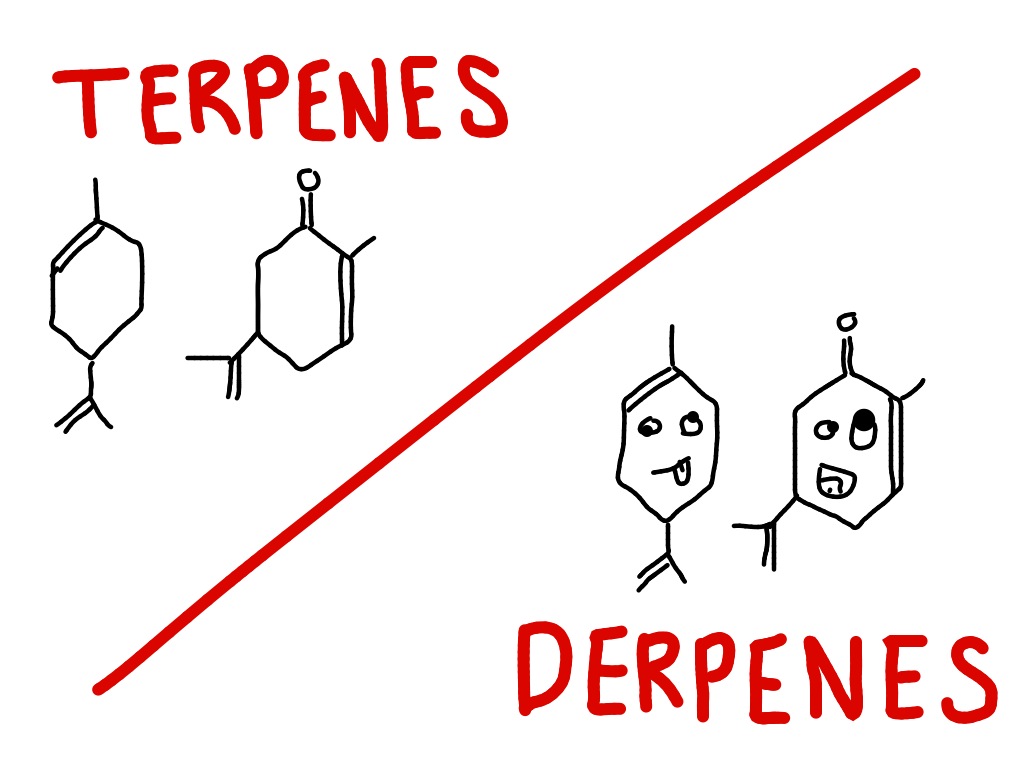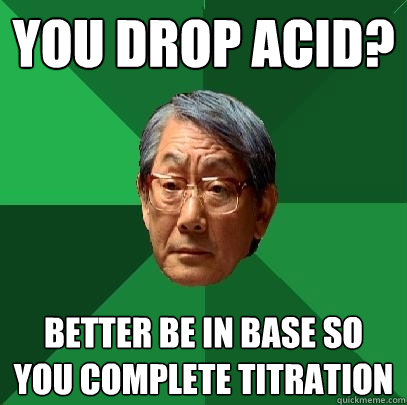Search found 9 matches
- Mon Mar 20, 2017 12:13 am
- Forum: Student Social/Study Group
- Topic: Post All Chemistry Jokes Here
- Replies: 9651
- Views: 3589112
- Mon Mar 20, 2017 12:10 am
- Forum: Student Social/Study Group
- Topic: Post All Chemistry Jokes Here
- Replies: 9651
- Views: 3589112
- Mon Mar 20, 2017 12:10 am
- Forum: Student Social/Study Group
- Topic: Post All Chemistry Jokes Here
- Replies: 9651
- Views: 3589112
- Sat Mar 04, 2017 9:32 pm
- Forum: *Electrophilic Addition
- Topic: Electrophilic and nucleophilic reactions
- Replies: 1
- Views: 1146
Electrophilic and nucleophilic reactions
What determines if a reaction as a whole is electrophilic, such as an electrophilic addition reaction; is it based on the atom/molecule added to the larger molecule? Is there such a thing as a nucleophilic addition reaction?
- Mon Feb 20, 2017 9:56 pm
- Forum: Student Social/Study Group
- Topic: Post All Chemistry Jokes Here
- Replies: 9651
- Views: 3589112
Re: Post All Chemistry Jokes Here

spreading some positivity
- Mon Nov 28, 2016 8:10 pm
- Forum: Student Social/Study Group
- Topic: Post All Chemistry Jokes Here
- Replies: 9651
- Views: 3589112
- Mon Nov 07, 2016 2:21 pm
- Forum: Student Social/Study Group
- Topic: Post All Chemistry Jokes Here
- Replies: 9651
- Views: 3589112
Re: Post All Chemistry Jokes Here
Technically, alcohol is a solution.
- Fri Oct 28, 2016 3:25 pm
- Forum: Student Social/Study Group
- Topic: Post All Chemistry Jokes Here
- Replies: 9651
- Views: 3589112
Re: Post All Chemistry Jokes Here
If you're not part of the solution, you're part of the precipitate.
- Sun Oct 02, 2016 12:17 pm
- Forum: Limiting Reactant Calculations
- Topic: Mass Always Equal?
- Replies: 3
- Views: 873
Re: Mass Always Equal?
If A reacts with B and B is the limiting reactant, B will be completely used up in the reaction while there is still some left of A. The conservation of mass applies to whatever portion of A and B react, but the mass left over from A (the reactant in excess) can also be included in the end mass. You...




